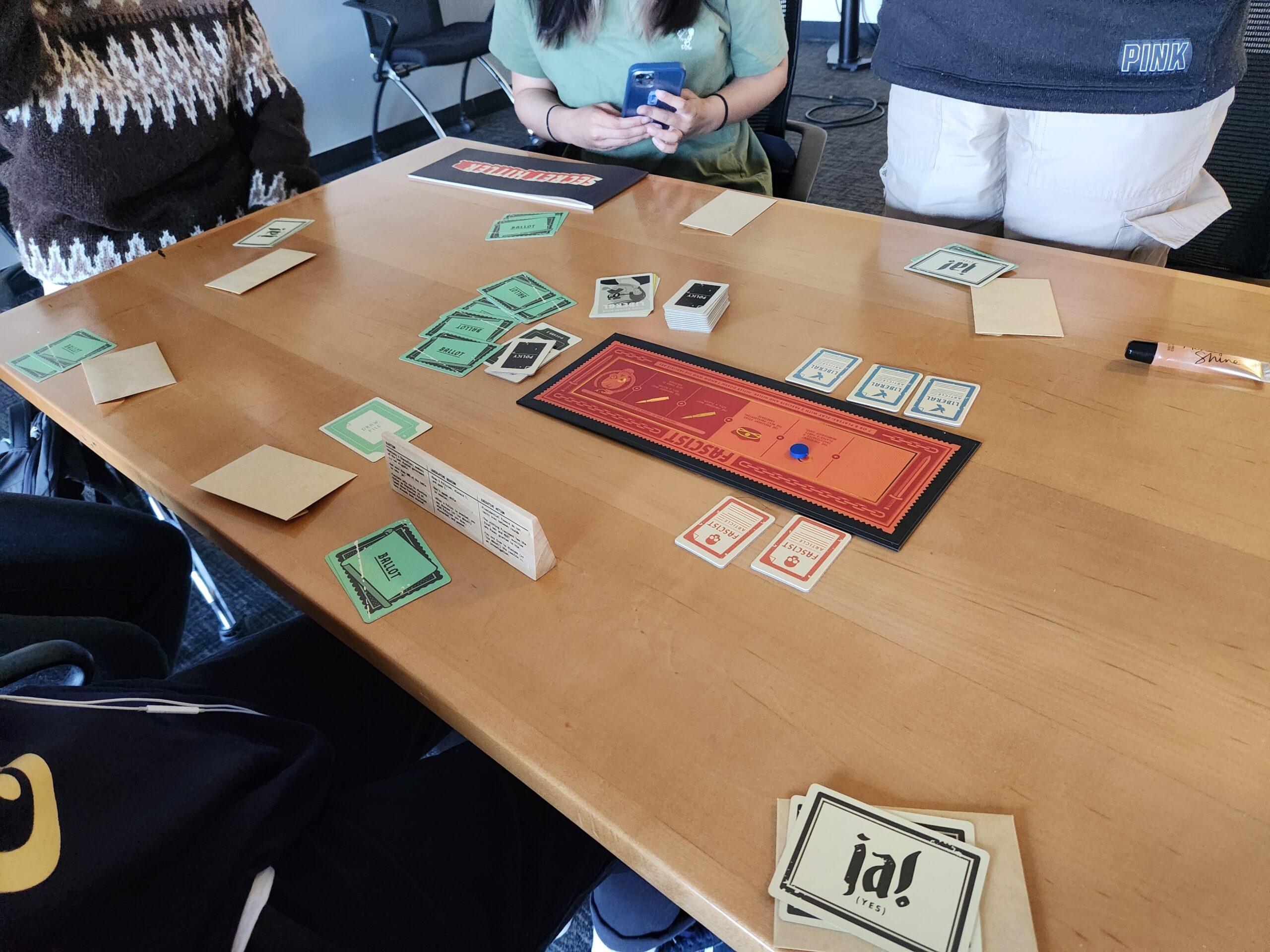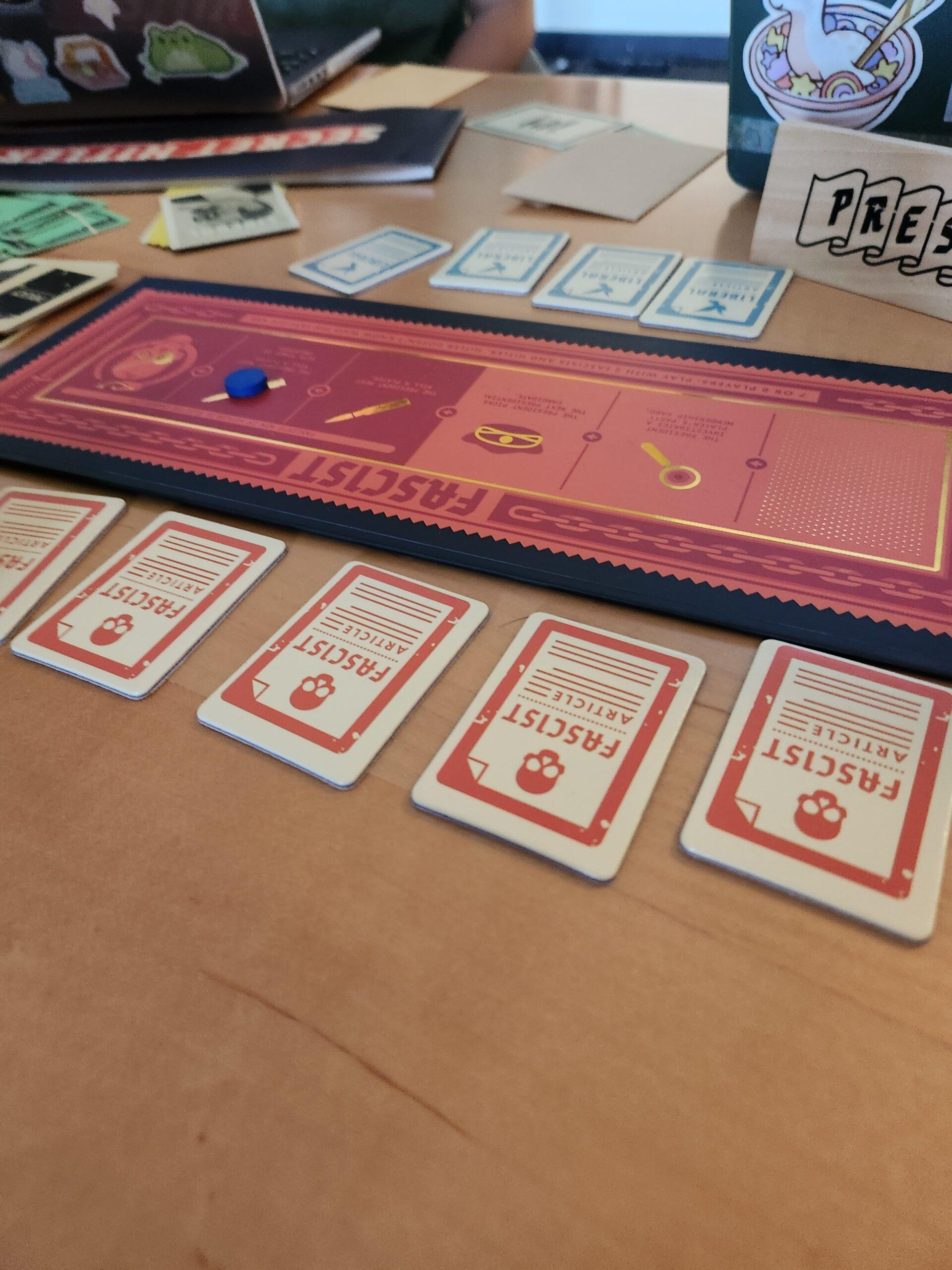For critical play, I played with other students during Game Night Secret Hitler. The game was created by Max Temkin and it is a party board game. Target audience are teenagers to young adults (ages 17 and up) who are either friends or can be played among people who don’t need to know each other. The games require 5 to 10 players and players can either be a fascist, hitler, or liberal, making the game a team competition with social deduction. All players can vote on the President’s decision of the Chancellor, and whoever is President picks 3 policy cards and discards 1 to give the Chancellor the other 2. Each round consists of the President choosing a Chancellor (if there are at least 3 fascist policies passed and if the Chancellor is Hitler, the Fascist party wins), everyone voting on the choice of Chancellor, and a policy being picked by the President and Chancellor. Therefore, the objective of the Fascist party is to pass 6 fascist policy cards or get Hitler elected as Chancellor. On the other hand, the Liberals must pass 5 liberal policies or “kill” Hitler to win. In terms of formal elements, the objective is a race between two parties. Because only the Fascists know who each other are while the rest of players only know their own identity, the game creates an interesting mechanic where players know different amounts of information.

Compared to other games in its genre, such as Mafia or Werewolf, Secret Hitler differentiates from them by incorporating more structured mechanics afforded through more resources like the board and cards, as well as more ways to play the game. Players have defined roles and objectives, and the use of policy cards and executive powers adds a layer of complexity. Players often are more invested in their deductions and alliances, so betrayals within the game feel more real. Also, the game’s theme of Nazi regime is interesting because it deals with morality and gives players a chance to be the extreme. In these aspects, the game is better off if all players are more experienced.
Secret Hitler was a lot of fun to play. It was fun because of the social deduction aspect, and we learned different strategies for detecting lies or lying your way through in order to create false reputations. Particular successes included acting like a good person through body language, and not explaining too much so you don’t attract too much suspicion. Everything you say will be scrutinized, so sometimes the best strategy is to do nothing. However, our game got more aggressive towards the end when the Fascist party realized that the Liberals needed only one more policy to win. During that round, we got lucky (fascists) that all 3 cards were fascist policies, or else the Liberals would have won. So if I were to change anything about the game, it would be to test whether or not having more liberal cards would make the game more aggressive from the very start. I would also consider making it more difficult for the Fascists to identify each other. This would add an extra layer of complexity to the gameplay and make it even more challenging for players to determine who to trust.



